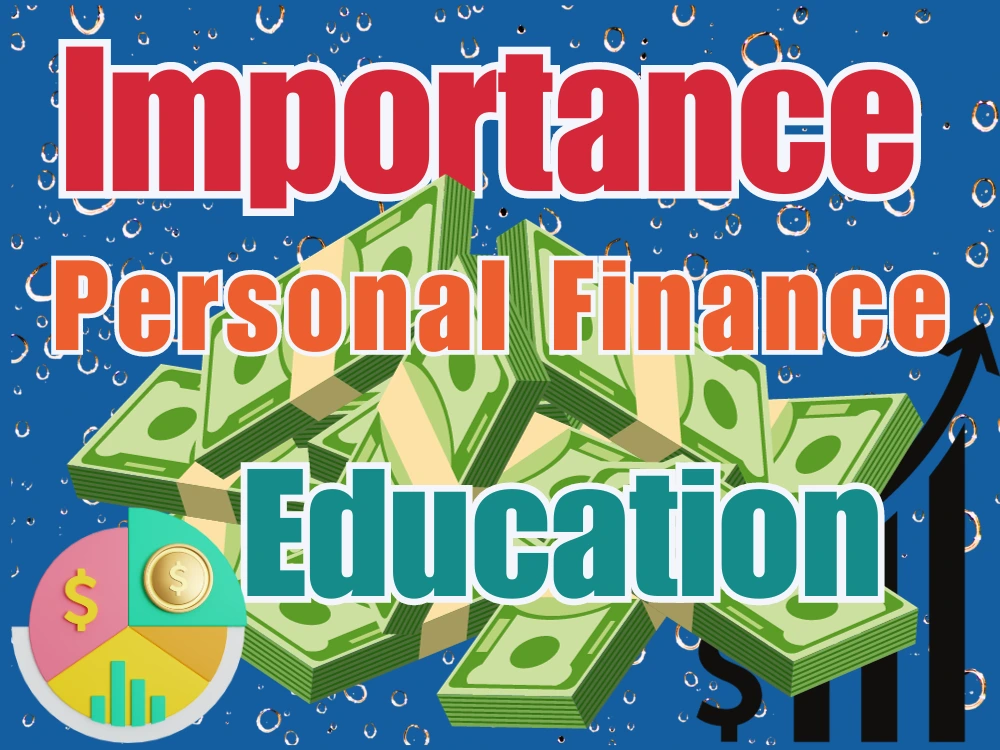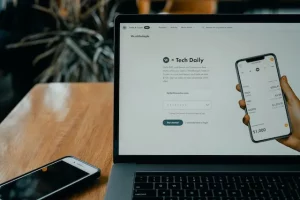In today’s fast-paced world, financial literacy is more important than ever. Yet, many schools overlook the essential subject of personal finance education. This article explores why personal finance education is the missing piece in schools and how bridging this gap can have a profound impact on students’ lives.
Without proper financial education, students are ill-prepared to navigate the complexities of adulthood. They graduate without understanding how to manage their money, budget effectively, or make informed financial decisions. As a result, many find themselves burdened with debt, struggling to save, and often falling victim to predatory lending practices.
I am of the opinion that by incorporating personal finance education into the curriculum, schools can equip students with the essential skills and knowledge needed for a successful financial future. Teaching concepts such as budgeting, saving, investing, and understanding credit can empower students to make sound financial decisions, avoid debt traps, and work toward their long-term goals.
Bridging the gap in personal finance education is not just about numbers; it’s about empowering the next generation to become financially independent and responsible individuals. School authorities can do better by integrating this missing piece into schools, we can ensure that every student has the tools they need to thrive in the real world.
The current state of personal finance education in schools
Personal finance education is more than just learning how to balance a checkbook or create a budget. It is about equipping students with the skills and knowledge they need to make informed financial decisions throughout their lives. Without this education, students are left to struggle through the complex world of personal finance on their own, often making costly mistakes that can have long-lasting consequences.
Financial literacy is essential for individuals to achieve financial independence and security. It allows them to understand the impact of their financial decisions, manage their money effectively, and plan for the future. Without this knowledge, individuals are at a higher risk of falling into debt, relying on predatory lending, and struggling to meet their financial goals.
The impact of the lack of personal finance education
Despite the importance of personal finance education, many schools still do not prioritize it in their curriculum. According to a survey conducted by the Council for Economic Education, only a few schools require high school students to take a personal finance course. This leaves the majority of students without access to essential financial education.
The lack of personal finance education in schools can be attributed to several factors. One of the main reasons is the focus on standardized testing and core subjects such as math, science, and English. Schools often prioritize these subjects over practical life skills, including personal finance education.
Unfortunately, many teachers themselves may not have received adequate training in personal finance, making it challenging for them to effectively teach the subject. Without the necessary resources and support, educators may not feel equipped to incorporate personal finance into their lessons.
The benefits of personal finance education
The consequences of the lack of personal finance education in schools are far-reaching. Without this knowledge, students are more likely to fall into financial pitfalls and struggle to achieve financial stability. They may take on excessive student loan debt without understanding the long-term implications, fall victim to predatory lending practices, or accumulate credit card debt without a repayment plan.
It might interest you to know that the lack of financial education perpetuates a cycle of financial illiteracy. Without the knowledge and skills to make informed financial decisions, many people may pass on these bad habits to future generations. This can lead to a perpetuation of poverty and financial instability.
Check out these personal finance resources
Strategies for implementing personal finance education in schools
Integrating personal finance education into the school curriculum can have numerous benefits for students. Some of the benefits are as follows:
- It empowers the students to take control of their financial future. By learning how to budget, save, and invest, students gain the skills necessary to make sound financial decisions. This knowledge can help them avoid debt, build wealth, and achieve their long-term goals.
- Personal finance education teaches students critical thinking skills. It requires them to analyze financial information, evaluate risks and rewards, and make informed decisions. These skills extend beyond personal finance and can be applied to various aspects of their lives, including career choices, housing decisions, and entrepreneurship.
- Personal finance education can contribute to economic growth and stability. When people are financially literate, they are more likely to contribute to the economy by making smart investments, starting businesses, and saving for retirement. This, in turn, can lead to a stronger and more prosperous society.
Resources for teaching personal finance in the classroom
To bridge the gap in personal finance education, schools can employ various strategies.
Some of these strategies are :
- Integration of personal finance concepts into existing subjects such as math or social studies. For example, math classes can incorporate lessons on budgeting, interest rates, and compound growth, while social studies classes can explore economic concepts and the impact of personal finance on society.
- Another strategy is to collaborate with financial institutions and organizations that specialize in financial education. These partnerships can provide schools with the necessary resources, guest speakers, and educational materials to enhance personal finance education.
- Professional development opportunities for teachers can help enhance their knowledge and confidence in teaching personal finance. Providing teachers with ongoing training and support can ensure that they are equipped to effectively deliver personal finance education to their students.
The role of parents in personal finance education
Numerous resources are available to support the teaching of personal finance in the classroom. Many organizations offer free lesson plans, online courses, and educational materials specifically designed for educators. These resources cover a wide range of topics, from basic money management skills to complex investment strategies.
Financial literacy games and simulations can also be valuable tools for engaging students and reinforcing key concepts. These interactive activities make learning about personal finance fun and practical, allowing students to apply their knowledge in a simulated environment.
Check out these useful personal finance resources
There are many online platforms and apps that provide students with opportunities to practice budgeting, track expenses, and simulate real-world financial scenarios. These tools can help students develop practical skills and gain a deeper understanding of personal finance concepts.
The long-term effects of personal finance education
While schools play a crucial role in providing personal finance education, parents also have a responsibility to teach their children about money management. Parents can serve as role models by demonstrating responsible financial habits and involving their children in household financial decisions.
Moreover, open conversations about money and financial goals can help children develop a healthy attitude towards money. By discussing topics such as budgeting, saving, and investing, parents can equip their children with the knowledge and skills needed to make sound financial decisions.
Success stories of schools implementing personal finance education
Personal finance education has the potential to have long-lasting effects on individuals and society as a whole. When students receive comprehensive financial education, they are more likely to make informed financial decisions throughout their lives. They are better equipped to manage their money, avoid debt, and save for the future.
Please permit me to also mention here that personal finance education can break the cycle of poverty and contribute to upward mobility. I am a strong believer in the concept of empowering people with the knowledge and skills needed to achieve financial stability, I also believe that personal finance education can help reduce income inequality and provide opportunities for economic growth.
Conclusion:
Closing the gap and empowering future generations
Several schools have successfully implemented personal finance education into their curriculum and witnessed positive outcomes. For example, a school in Massachusetts introduced a mandatory personal finance course for all high school students. As a result, the school saw an improvement in financial literacy scores and an increase in students’ confidence in managing their money.
Another success story comes from a school in Texas that integrated personal finance concepts into their math curriculum. By teaching students about budgeting, interest rates, and investments, the school saw an improvement in math scores and an increased interest in personal finance among students.
These success stories demonstrate the positive impact that personal finance education can have on students’ academic performance and financial well-being.
Thanks for reading.
Please feel free to drop your comment in the comment section below.




